Small business owner bogged down by manual tasks? AI tools are your answer. No longer just for big companies, these tools automate boring tasks, boost productivity, and don’t cost a fortune. They can manage emails, improve writing, and simplify marketing. Stay ahead in the market. Ready to transform your operations? Let’s find the best AI tools for small businesses.
Understanding AI Tools for Small Business
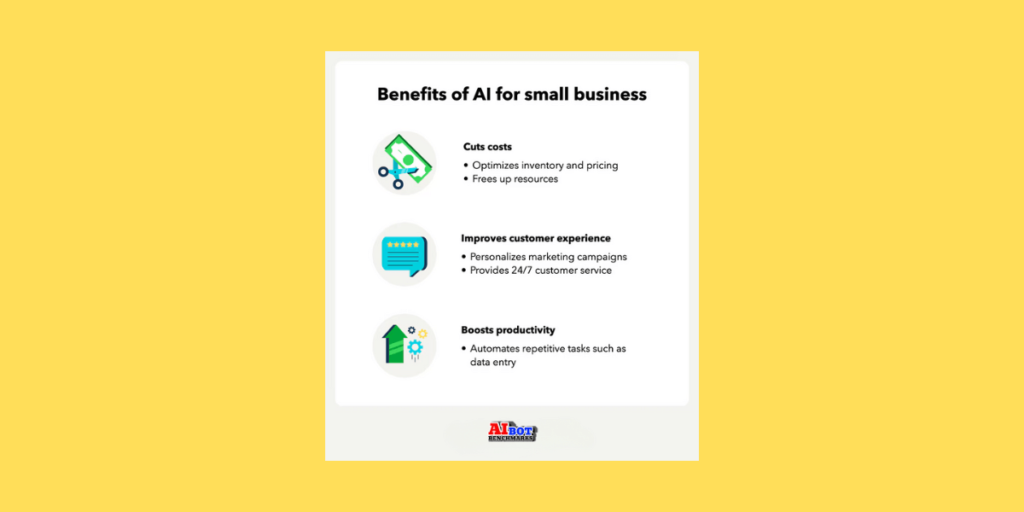
In today’s fast-moving business world, AI tools are transforming how small businesses operate and thrive. As technology advances, these tools offer new possibilities and efficiencies that can significantly boost your business’s productivity. But what exactly are AI tools, and why are they so crucial for small business owners? Let’s dive in.
What Are AI Tools?
AI tools are software applications powered by artificial intelligence, designed to perform tasks that typically require human intelligence. From data analysis to customer service, these tools help automate routine work, allowing small business owners to focus on growth and innovation. Imagine AI as a helpful assistant tirelessly working behind the scenes, improving various aspects of your business operations.
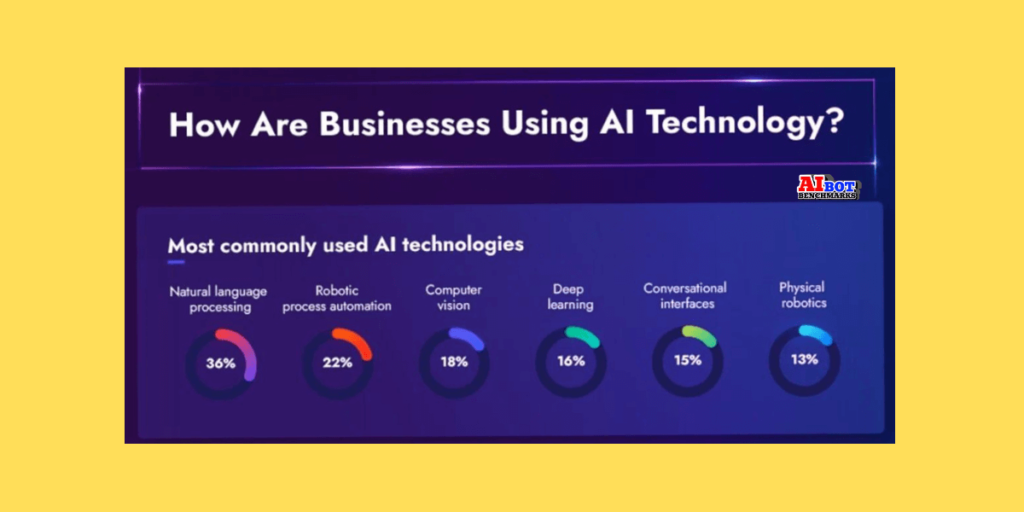
Why Are AI Tools Essential for Small Businesses?
Small businesses often face challenges like limited resources and tight budgets. AI tools can be a game-changer by providing cost-effective solutions and leveling the playing field with larger competitors. Consider them as allies that help you do more with less, saving time and money.
Here’s why these tools are essential:
- Efficiency: AI tools can automate repetitive tasks like email marketing or data entry, freeing up valuable time and reducing human error.
- Personalisation: With AI, you can personalise customer interactions, enhancing satisfaction and loyalty. This is particularly vital for small businesses competing in a crowded market.
- Insight: AI provides insights through data analysis, helping you make informed decisions. It’s like having a wise mentor guiding your business strategies.
How to Choose the Right AI Tools
When selecting AI tools for your small business, it’s important to think about your unique needs and objectives. Here’s a handy checklist to guide your decision-making process:
- Identify Goals: Clearly define what you want to achieve with AI. Are you looking to improve customer service, enhance marketing, or streamline operations?
- Evaluate Cost: Consider the budget and compare it with the benefits. Many AI tools offer scalable options to fit different budgets.
- Assess Usability: Choose tools that are user-friendly and require minimal training. You don’t want to spend too much time figuring out how to use them.
- Ensure Security: Data protection is critical. Make sure the tools comply with industry standards and safeguard your business data.
For more insights, you might find these articles on AI tools for small businesses and AI tools for startups helpful.
Remember, incorporating AI tools into your small business strategy can open up a world of possibilities, positioning you for success and growth in the ever-changing market. Keep these insights in mind as you explore the best AI solutions tailored to your needs.
Benefits of Using AI Tools
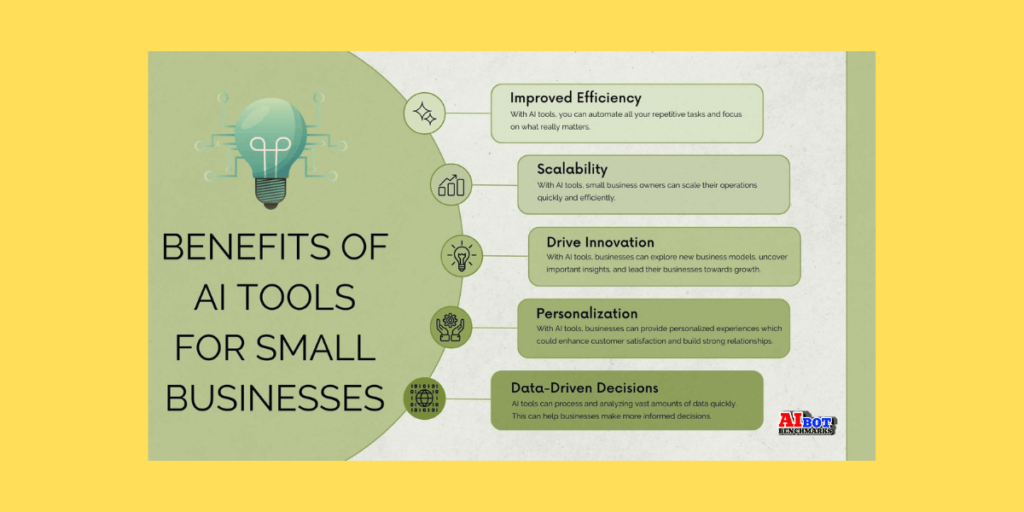
In today’s fast-paced business environment, small business owners face unique challenges that AI tools can help address. These tools offer a range of benefits designed to boost productivity, improve efficiency, and ultimately drive growth. Let’s explore how AI tools transform the way small businesses operate.
Time-Saving and Efficiency
AI tools can streamline tasks that usually require hours of manual work. Imagine automating your email marketing with a tool like Mailmodo, which allows small business owners to create email templates in a fraction of the time it takes using traditional methods. Think of AI as your own personal assistant that never sleeps—ready to handle repetitive and mundane tasks so you can focus on what truly matters.
- Automation: AI tools automate routine tasks, freeing up time for strategic planning.
- Seamless Operations: Integration with existing systems ensures a smooth workflow.
- Focus: Employees can concentrate on creative and strategic work instead.
For more on how AI enhances efficiency, visit TechTarget’s detailed article on AI benefits.
Cost-Effectiveness
Many small businesses operate on tight budgets, making cost-effective solutions essential. AI tools can be a game-changer here, offering both affordability and high returns on investment. Whether it’s reducing the need for large customer service teams through AI chatbots or automating marketing campaigns, these tools can help businesses save money while maintaining quality.
- Reduced Labour Costs: Automate tasks that otherwise require multiple hires.
- Optimised Resource Allocation: Direct funds towards growth initiatives instead of routine operations.
- Scalable Solutions: Start small, and expand usage as your needs grow.
Read more about how AI tools contribute to cost savings at Forbes’ insights on AI use in small businesses.
Improved Decision-Making
AI tools analyse data at lightning speed, providing insights that can significantly enhance decision-making processes. They act like a compass guiding small business owners through the mingled oceans of data, ensuring you never lose direction.
- Data-Driven Insights: Tools like Zia by Zoho CRM can predict trends and customer behaviours.
- Real-Time Information: Get up-to-the-minute insights into your business performance.
- Enhanced Strategy: Make informed decisions that drive growth and success.
For a broader perspective on AI’s impact on decision-making, check out Orion Policy’s report on empowering small businesses with AI.
By harnessing the power of AI tools, small business owners can unlock new potential, save valuable time, reduce costs, and make smarter decisions. Each of these benefits contributes to creating a more competitive and efficient business environment.
Check out our top ai tool for business Here
Top AI Tools for Small Business
Running a small business today means dealing with a mountain of tasks. From managing emails to keeping customers happy, it can all feel overwhelming. Good news! AI tools can help streamline these processes and boost your productivity. Let’s explore three essential tools that can make a difference in your business operations.
Mailmodo for Email Marketing
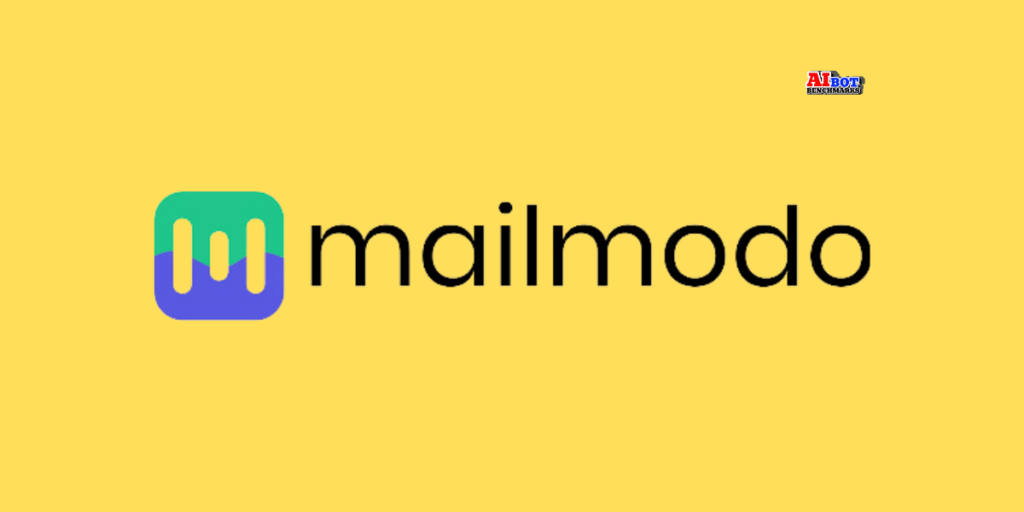
Email marketing can be time-consuming, but Mailmodo makes it a breeze. Imagine not having to spend hours crafting email campaigns. With features like an AI email template generator, Mailmodo lets you create professional templates in minutes. This tool not only saves time but also helps increase engagement with interactive email elements. Thanks to Mailmodo’s features, you can automate your marketing with ease.
Key Features:
- AI-powered email template creation
- Automation of email workflows
- Interactive widgets to boost engagement
Mailmodo is not just for creating emails; it’s about transforming your email marketing strategy into a streamlined process that delivers results.
ChatGPT for Customer Interaction

Handling customer queries can be daunting, especially for small teams. ChatGPT steps in as a smart solution for automating customer interactions. By using AI chatbots, you can answer customer questions 24/7, ensuring they are never left waiting. It’s like having a virtual assistant who never sleeps. ChatGPT’s integration can transform your customer service into a seamless operation.
Uses of ChatGPT:
- Automating responses to common customer queries
- Offering tailored recommendations
- Enhancing customer service with consistency
ChatGPT doesn’t just handle tasks; it ensures customers feel valued and heard, making your business more customer-centric.
Notion AI for Project Management
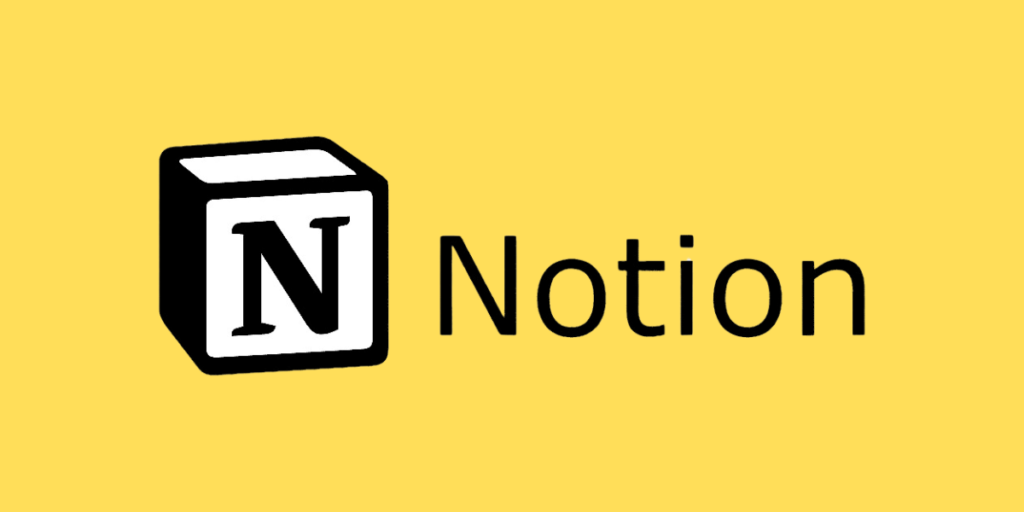
Keeping projects on track is crucial for any business, and Notion AI makes this easy. It’s your digital workspace, helping you manage tasks, track progress, and collaborate with your team effortlessly. Think of it as a digital planner that never misses a deadline or forgets a task. Notion’s AI features offer smart suggestions that simplify project management.
Highlights of Notion AI:
- Automatic task management and scheduling
- Real-time collaboration tools
- Smart document structuring for easy navigation
Notion AI not only organizes your projects but ensures that every team member is on the same page, driving productivity through the roof.
By using these innovative AI tools, small business owners can focus more on growth and less on mundane tasks. They empower you to work smarter, not harder, making your small business thrive amidst the competition.
Choosing the Right AI Tool
Choosing the right AI tool for your small business can feel like navigating a digital maze. With so many options out there, each promising to revolutionise your workflow, how do you decide which tool suits your business best? Whether it’s streamlining your marketing efforts or managing your finances, the right AI tool can be your secret weapon to boost productivity. Here’s how to make the best choice.
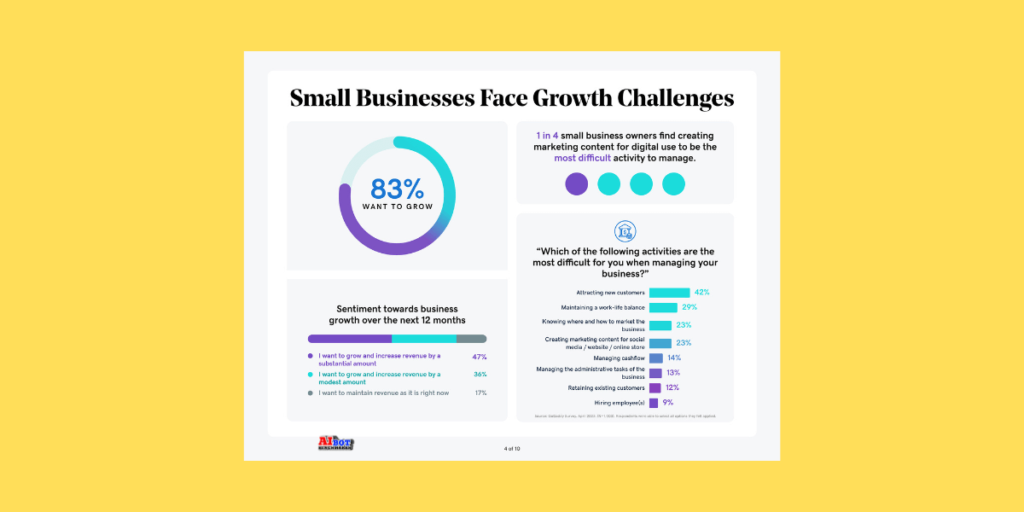
Identify Your Needs
First things first—what do you actually need? Are you drowning in emails and need a solution like Mailmodo to automate marketing campaigns? Or maybe you require something like DALL-E to spice up visual content for social media?
Ask yourself:
- What tasks consume the most time?
- Where can AI improve efficiency?
- What are your most pressing business goals?
This reflection sets the stage for finding an AI tool that aligns perfectly with your objectives.
Assess Usability and Integration
It’s crucial that the tool is user-friendly. You don’t want a solution that’s so complex it gathers dust in the digital cupboard. Check if the tool integrates with your existing systems or requires a complete overhaul. The last thing you need is a tool that disrupts your workflow instead of enhancing it. Consider tools like those featured on HubSpot which are often designed with usability in mind.
Evaluate Costs vs. Benefits
Investing in AI tools should be seen as just that—an investment. But how can you ensure that this expense translates into growth?
- Cost: Look beyond the price tag. Consider time savings, error reduction, and improved customer experience.
- Value: Measure the potential return on investment. Will the tool help you generate more leads or sales?
Sometimes, paying a little more upfront for a high-quality tool can save you heaps in the long run.
Consider Security and Data Privacy
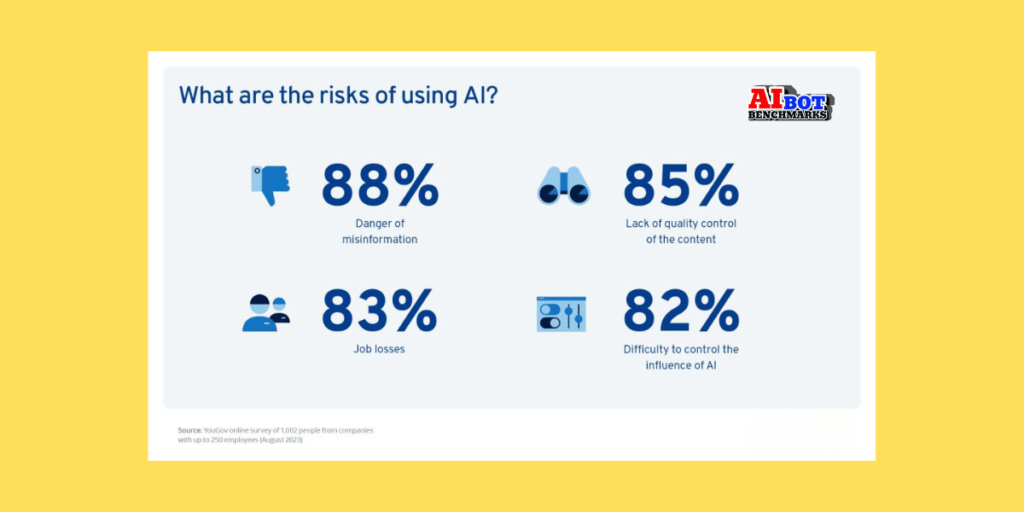
In the age of data breaches, security is paramount. Especially when you’re dealing with sensitive customer data, you can’t afford a mishap. Make sure your chosen tool adheres to industry standards for security and data protection. Dive into options like those discussed on Cloudzy to understand different security features.
Seek Reviews and Testimonials
Before you make your final decision, see what others are saying. Reviews and testimonials provide insights that you might not have considered. Whether it’s a tool that claims to be user-friendly but isn’t, or a cheaper option that offers incredible value, learning from others’ experiences can be invaluable.
Choosing the right AI tool for your small business is like choosing the perfect dance partner. When you find the right one, your business can glide smoothly across the marketplace floor. Keep these pointers in mind, and you’ll be sure to make a choice that complements your goals and propels your business forward.
Implementing AI Tools
Integrating AI tools into your small business can transform how you operate, making tasks faster and more efficient. Are you ready to embrace AI and take your business to the next level? Here, I’ll break down some strategies for seamlessly incorporating AI tools into your existing workflow.
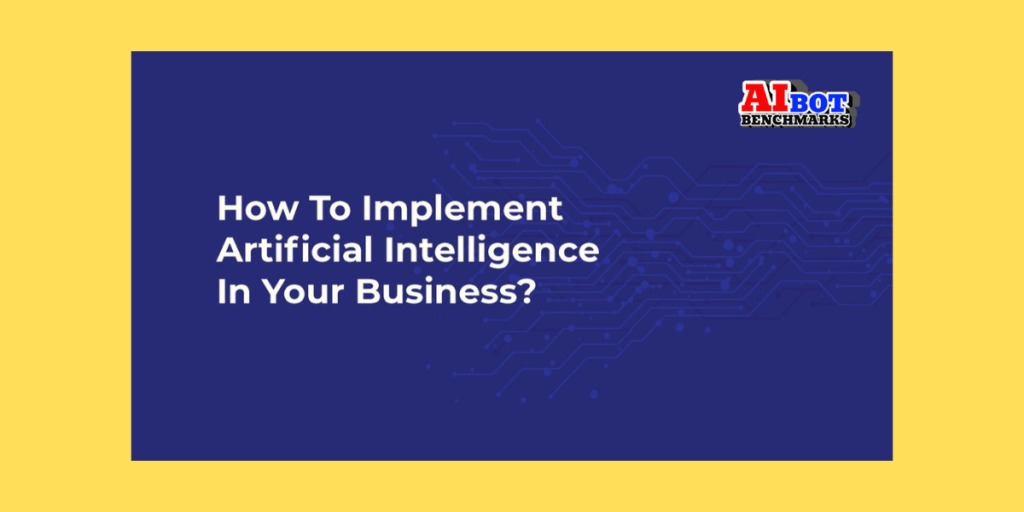
Identify the Right Tools
First things first, identifying the right AI tools for small business is essential. This is like picking the right team for a match; you want the best fits for your needs. Start by evaluating what parts of your business could benefit from automation. Do you struggle with scheduling? Perhaps AI-powered calendar tools would help. Or, if customer support takes up too much time, an AI chatbot could be the way forward.
- Assess Needs: Look at the areas where you’re spending the most time. Where would AI make a difference in efficiency?
- Research Tools: Use resources like Investopedia to find AI tools tailored to your business type.
- Try Before You Buy: If possible, trial different tools to see how they fit into your processes.
Train Your Team
AI tools are great, but only if your team knows how to use them. Think of it as giving someone a sports car; they need to know how to drive it to make the most of it. Training is crucial. Provide comprehensive training sessions and create FAQ resources to aid in transitions.
- Hands-On Training: Engage your team with interactive training sessions.
- User Guides: Develop or source simple user guides to help your team navigate new tools.
- Continuous Learning: Encourage feedback and adapt training based on real-time challenges.
Gradual Integration
Rushing into AI implementation can be overwhelming. Instead, approach it step-by-step, like building a house brick by brick. Start by integrating one tool at a time and measure its impact before moving to the next. This not only ensures a smoother transition but also helps pinpoint which tools are genuinely effective.
- Prioritise: Begin with the tool that will address the most significant pain point.
- Pilot Programs: Test the tool with a small group before a full-scale roll-out.
- Monitor and Adjust: Keep track of results and be ready to make necessary tweaks.
Monitor Performance
To harness the full potential of AI tools, monitoring their performance is vital. Think of it as keeping an eye on the scoreboard; you need to know where you stand to plan your next move effectively. Use analytics and feedback from your team to assess the effectiveness of each tool.
- Track Metrics: Set specific goals and use AI analytics to measure performance.
- Team Feedback: Regularly meet with your team to discuss what’s working and what needs improvement.
- Adjust and Pivot: Don’t shy away from changing your approach based on data and feedback.
By systematically implementing AI, small businesses can enhance productivity and tackle everyday challenges efficiently. Ready to dive into the AI realm? Check out more resources on how small businesses can use AI tools effectively.
Incorporate these strategies, and you’ll soon find that AI isn’t just a tool, but a valuable teammate in your business journey.
Future of AI in Small Businesses
Artificial intelligence (AI) is not just for tech giants; it’s quickly reshaping how small businesses operate and compete. Think of AI as both a tool and a partner, helping small businesses grow, automate tasks, and make smarter decisions. The future of AI tools for small businesses is filled with potential, and it’s revolutionising how everyday operations are managed.
AI Is Transforming Customer Interaction
One way AI is making waves is by transforming customer interactions. Just imagine a chatbot that understands your customer’s needs better than your best sales rep. Chatbots and AI-powered assistants can answer questions, offer product recommendations, and even manage bookings around the clock. This means never missing a customer inquiry, ensuring you are always open for business.
- Instant Response: AI chatbots provide instant replies, minimising wait times for customers.
- Personalisation: Tailored solutions and recommendations based on previous interactions enhance the customer experience.
- 24/7 Availability: AI doesn’t sleep, offering continuous customer support without added human resource costs.
To explore how AI enhances customer relationships, you can read more about AI’s Big Impact on Small Business.
Revolutionising Marketing Strategies
AI is also redefining how we approach marketing strategies. It helps small businesses develop targeted advertising campaigns by analysing customer behaviour and preferences.
- Data-Driven Insights: AI analyses purchase history and browsing patterns to tailor marketing strategies.
- Automation: Streamlining email and social media campaigns through AI ensures timely delivery and relevant content.
- Cost Efficiency: Reduces marketing costs by ensuring that budgets are focused on high-impact strategies.
To see how small companies are navigating these AI transformations, check out this discussion on AI implications.
Simplifying Operation and Management
Beyond customer interactions and marketing, AI is a game-changer in day-to-day operations. From managing inventory to predicting sales trends, AI tools for small businesses promote efficiency.
- Inventory Management: AI predicts stock needs, preventing overstocking or stockouts.
- Financial Analysis: Provides insights on revenue trends and cost-saving opportunities.
- Task Automation: AI automates repetitive tasks, freeing up human resources for strategic roles.
For insights on AI’s transformative role in operations, you can learn more about AI’s impact on small businesses.
The Road Ahead
As AI continues to evolve, its capabilities and applications multiply, presenting new opportunities for small businesses. Remaining competitive in the future may mean embracing AI’s potential to reshape not just one or two facets of business but the entire operational framework.
For a deeper dive into future predictions, read The Future Of AI In Business. Whether you’re a tech enthusiast or a traditionalist, understanding AI’s role in transforming your small business could be the key to thriving in a fast-paced market.
Conclusion
Harnessing the power of AI tools for small business is no longer a luxury; it’s a necessity for thriving in today’s competitive landscape. Whether it’s automating marketing emails, crafting engaging content, or managing sales leads, AI tools can transform the way small businesses operate, increasing efficiency and productivity.
By adopting these innovative solutions, small business owners can not only save time but also focus more on strategic growth. I encourage you to explore these AI tools and unlock new opportunities for your business.
If you haven’t already started integrating AI into your operations, now’s the time to take the plunge. What AI tool do you think could revolutionise your business the most? Dive in and let these tools make a lasting impact on your journey.


